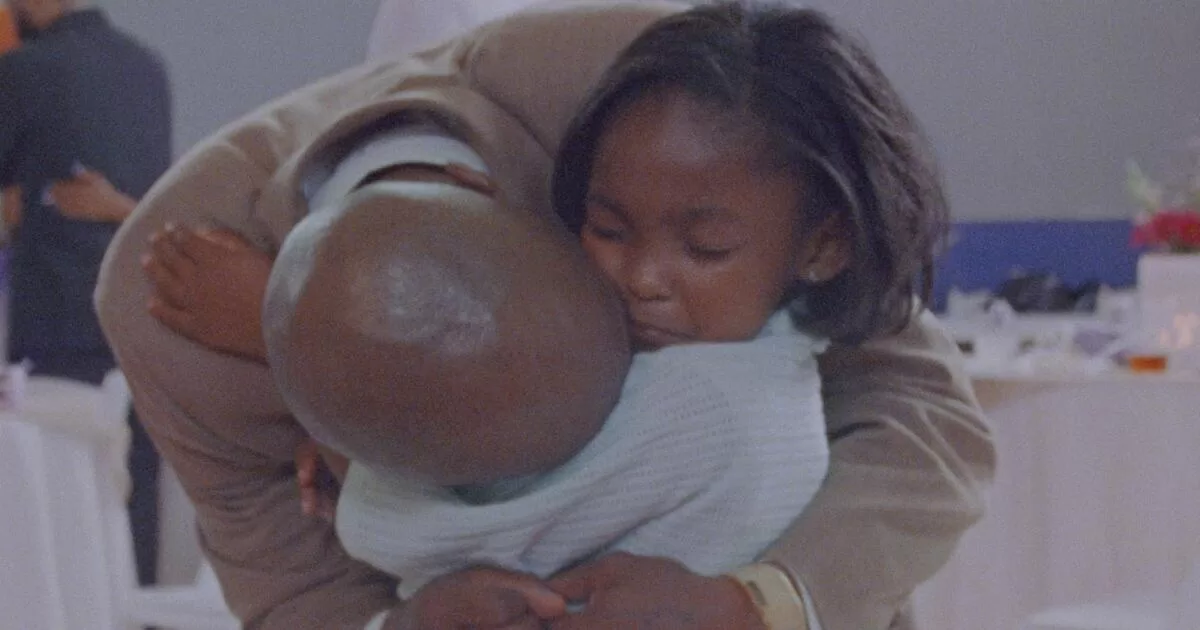When a parent goes to jail, everyone in the family does time. And in Black communities most severely affected by the impersonal whims of the prison industry, a unique program has been fostered, intended for girls seeking a deeper connection to their incarcerated fathers: a date with them at the jail.
The documentary “Daughters,” from directors Natalie Rae and Angela Patton, follows one such Daddy Daughter Dance in Washington, D.C., a carefully arranged night in which orange prison uniforms are swapped for jackets and ties, the jail’s decorated gym takes on a prom-like air, and dressed-up girls get a few celebratory hours in which their separation anxiety is briefly, movingly set aside.
The film, which focuses on a handful of girls and their dads as the dance looms, is as touching as it sounds — and invariably as sad. It’s to the great wisdom of the collaboration between Rae, whose background is directing, and Patton, an activist whose nonprofit prioritizes the futures of Black girls, that while the dance is clearly intended to be positive and inspiring (we’re told 95% of the fathers who participate never go back to jail), the movie isn’t afraid to show just how much fragility and uncertainty goes into the buildup and its aftermath.
That commitment to the emotional integrity of a process that might reveal heartache as much as hope keeps “Daughters” from seeming like a commercial, even as it wholeheartedly sells us on the worth of this program. Your buttons will be pushed immediately when you meet the charming, chatty 5-year-old Aubrey, a math whiz whose joy at numbers is offset by their representing the years her dad, Keith, will be away. Elsewhere, 10-year-old Santana, who helps her mother raise an infant sibling, is a serious kid with an outer shell hardened by the weakness of the adults in her life, while 11-year-old Ja’Ana — who doesn’t know her dad at all — carries her mother’s doubts about his commitment level. And struggling high schooler Raziah has, according to her mother, already expressed worrying thoughts of self-harm.
The dads, required to meet in fatherhood circles led by a supportive coach in an airy room marked by a big circular window, are a believably nervous bunch. They reflect honestly on their predicaments and are encouraged to view the upcoming dance in terms that prioritize how their daughters need to view them: as potential promise-keepers.
We learn the men’s names, but the filmmakers never tell us what they’re in for, which feels right — who they are striving to become, as opposed to what they were, defines them for us. In a riskier but effective grace note, interspersed throughout are poetic, home-movie-fashioned interludes, scenes of the girls at play that suggest missed experiences.
Unsurprisingly, on the big day, when these spiffed-up fathers wait expectantly for their dates, your throat may not be able to handle the lumps. But while there are hugs, tears, laughs, more hugs, silly photos and adorable dances, there are also pockets of getting-to-know-you awkwardness and even full-on tension. Rae and Patton, who filmed their subjects across years, are attuned enough to the many feelings in play.
“Daughters” doesn’t have an obvious ending, and it’s in the realities of distance that we come to fully grasp the complexity of the dance, girls and fathers bonding without plexiglass barriers or pricey video calls separating them. To touch, and to be touched, makes “Daughters” an achingly beautiful case for second chances in an isolating, fractured world.
‘Daughters’
Rating: PG-13, for some thematic elements and language
Running time: 1 hour, 47 minutes
Playing: Opens Friday, Aug. 9 at the Bay Theater, Pacific Palisades; streaming on Netflix Aug. 14
